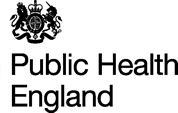The biological processes underlying the development of dementia and other neurodegenerative disorders are complex and not fully understood, but accumulating evidence has demonstrated that exposure to air pollution, especially airborne particles, is a potentially important environmental risk factor. Some have suggested that inhaled particles could impact the brain directly, by entering the brain via the olfactory nerve or across the blood-brain barrier (BBB). Other hypotheses suggest that effects on the brain are indirect via chemical messengers released from the lung. Given the significant impact of brain diseases on individuals, the population at large and the economy, this is considered an important area for investigation. The proposed project will apply classic toxicological approaches and advanced imaging techniques to investigate the impacts of inhaled particles on BBB integrity, the translocation of particles, particle constituents and inflammatory mediators across this barrier and the induction of neuroinflammation, using both human cellular and animal models. This study will utilise particles reflecting known pollutant sources in ambient air (e.g. diesel exhaust) at doses that reflect environmental concentrations. The insights from the work will enhance our understanding of the mechanisms by which inhaled particles could impact upon the brain, strengthening the evidence base to inform targeted advice and policies that could improve the population’s neurological health.
Location
The PhD is a jointly supervised project between Dr Rachel Smith at UKHSA Radiation, Chemical and Environmental Hazards (RCE) and Dr Ian Mudway of Imperial College London (ICL). The student will be registered at ICL and based for most of the time in the Toxicology Department at RCE on the Harwell Campus in Oxfordshire, with short visits to ICL for academic activities and training on particle characterisation. In addition to project specific training the student will be able to make use of the skills development programme at ICL and integrate with the multi-disciplinary Nanoparticle Inhalation Research Group. Associate Supervisors at UKHSA will offer opportunities to the student to engage with those working on air pollution policy. Current collaborations with STFC facilities on the Harwell Campus, including focused ion beam scanning electron microscopy at the Central Laser Facility, also allow the potential for the use of cutting-edge imaging techniques. This project presents a unique opportunity to combine both academic and public sector experiences in a project to tackle a major health issue.
Funding
The project is funded by the UK Health Security Agency (UKHSA), an executive agency of the UK Department of Health & Social Care and is open to UK students only. The funding covers the tuition fees and provides an annual stipend for three years (currently at £18,062 for 2022-2023, regardless of geographic location). See ICL Tuition Fee status for details of eligibility
Eligibility
We invite applications from self-motivated individuals who hold/or expect to gain a first or upper second class honours degree (or equivalent), or an MSci or Master’s degree, in a Life Sciences associated discipline (e.g. biochemistry, pharmacology, neuroscience, toxicology). Candidates with a lower second-class degree supplemented by a Master’s qualification (in a relevant subject) will also be considered.
They should ideally also have relevant laboratory experience (e.g. cell culture techniques, biochemical assays), a willingness to learn and have a basic level of information technology skills.
Proposed start date: October 2022
Supervisor contact details: for informal enquiries about this PhD position please contact Dr Rachel Smith E-mail: [Email Address Removed]
To apply for this PhD please send a CV (including referees) and covering letter explaining your interest in the project via email to [Email Address Removed]

 Continue with Facebook
Continue with Facebook



